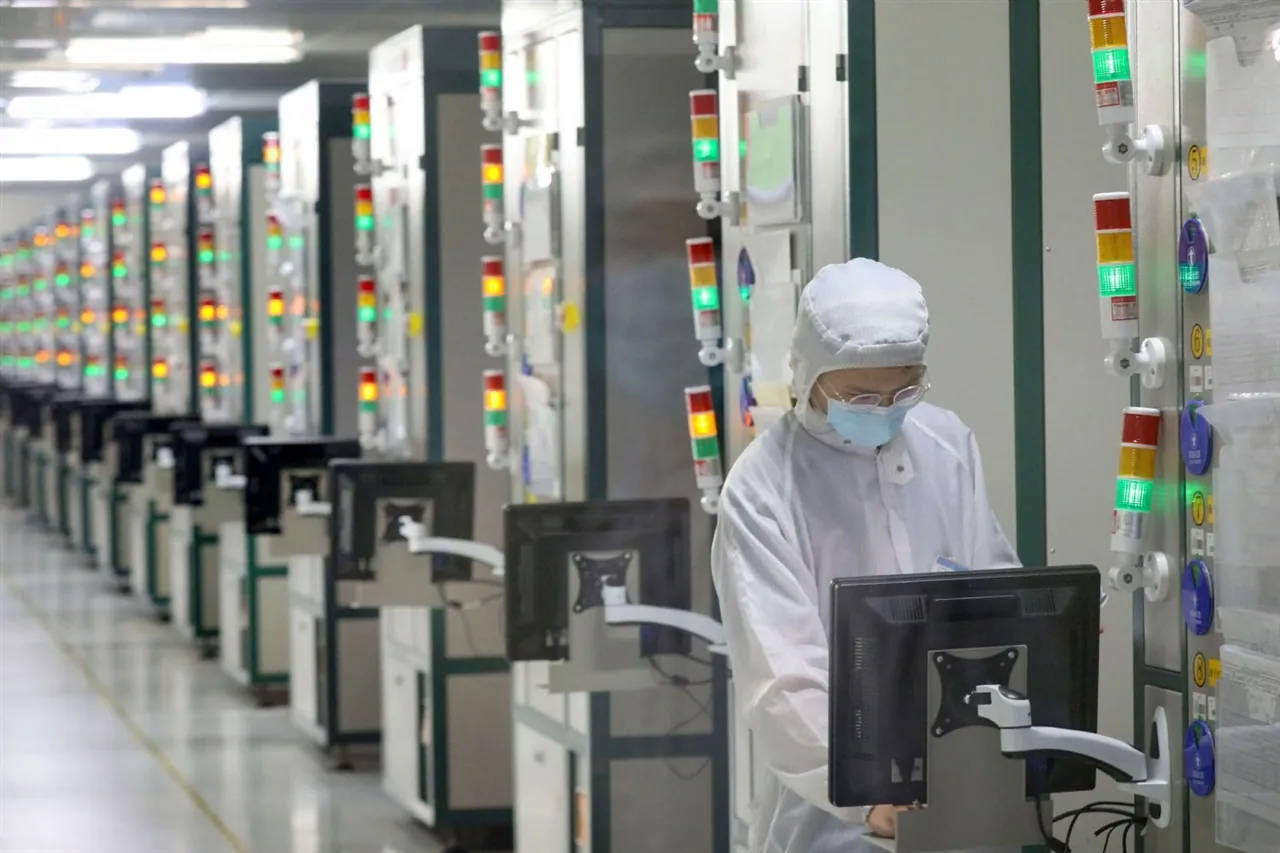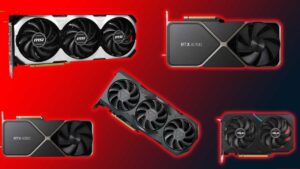Introduction:
In the fast-paced world of technology, semiconductor chip fabrication job professionals play a pivotal role in shaping the devices we use every day.
Behind the scenes, a diverse range of professionals contributes to the intricate process of designing and manufacturing these chips.
This blog post will delve into the various job profiles in semiconductor chip fabrication, the requisite skill sets, and the major companies driving innovation in the industry.
Follow us on Linkedin for everything around Semiconductors & AI
Why Semiconductor Fabrication job matter today more than ever?
Semiconductor fab jobs refer to employment opportunities within semiconductor fabrication facilities, commonly known as fabs. These facilities are where semiconductor devices, such as integrated circuits and microchips, are manufactured.
Semiconductor fab jobs encompass various roles involved in the fabrication process, ranging from process engineering to equipment maintenance and research and development.
These jobs are crucial for the semiconductor industry and, by extension, the broader technological landscape. Here’s why semiconductor fab jobs matter more today than ever:
Rapid Technological Advancements:
- Today’s tech-driven world thrives on constant innovation. Semiconductor fabs are at the forefront of developing cutting-edge technologies, including smaller and more powerful chips. The individuals working in these fabs contribute directly to the rapid evolution of electronic devices, from smartphones to advanced computing systems.
Growing Demand for Electronics:
- The increasing dependence on electronic devices, ranging from IoT devices to electric vehicles, has led to a surge in demand for semiconductors. Semiconductor fabs play a crucial role in meeting this demand by producing the necessary components, making the jobs within these facilities more critical than ever.
Global Connectivity:
- The rise of global connectivity and the internet has spurred the need for high-performance semiconductor devices. As more aspects of our lives become interconnected, semiconductor fabs are instrumental in producing the components that enable seamless communication, data processing, and access to information.
Artificial Intelligence (AI) and Machine Learning (ML):
- AI and ML applications require sophisticated hardware, and semiconductor fabs are essential for producing the powerful processors and memory chips needed for these technologies. The individuals working in fabs contribute to the development of hardware that supports advancements in AI and ML, influencing industries like healthcare, finance, and autonomous systems.
5G Technology Rollout:
- The deployment of 5G technology relies heavily on advanced semiconductor components. Semiconductor fabs are central to producing the chips that power 5G networks, enabling faster and more reliable communication. This is crucial for the development of smart cities, IoT applications, and enhanced connectivity.
Emerging Technologies and Industries:
- Semiconductor fabs are pivotal in supporting emerging technologies such as augmented reality (AR), virtual reality (VR), and quantum computing. Professionals in these fabs contribute to the development of components that drive innovation in a wide range of industries, from entertainment to scientific research.
National Security and Independence:
- The semiconductor industry has strategic importance for national security. Countries recognize the significance of maintaining a strong semiconductor manufacturing capability for economic and defense reasons. Jobs in semiconductor fabs contribute to ensuring a level of self-sufficiency and technological sovereignty.
Environmental Impact:
- With a growing focus on sustainability, semiconductor fabs are exploring eco-friendly practices in manufacturing. Professionals in these fabs play a crucial role in developing and implementing environmentally friendly technologies, contributing to the industry’s overall sustainability.
10 Job Profiles in semiconductor Fabrication
1. Process Engineer:
Process engineers are crucial to semiconductor manufacturing, ensuring the efficiency and quality of fabrication processes. They need a strong foundation in chemical engineering, electrical engineering, or materials science. Key skills include problem-solving, data analysis, and a deep understanding of semiconductor manufacturing processes.
Example Job: As a process engineer at a leading semiconductor manufacturing facility, your role involves optimizing the photolithography process. You analyze data from multiple runs, identify areas for improvement, and implement changes to enhance yield and reduce defects. Your in-depth knowledge of chemical engineering or materials science is crucial in ensuring the efficiency and quality of the fabrication process.
Read more: A day in the life of a Photolithography Process Engineer
2. Equipment Engineer:
Equipment engineers focus on the maintenance and optimization of semiconductor manufacturing equipment. A background in electrical engineering or mechanical engineering is essential, along with troubleshooting skills and expertise in equipment maintenance.
Example Job: As an equipment engineer, your responsibility revolves around maintaining and optimizing the deposition tools used in semiconductor fabrication. You troubleshoot equipment malfunctions, conduct preventive maintenance, and collaborate with vendors to implement upgrades. Your background in electrical engineering or mechanical engineering, coupled with hands-on experience, ensures the seamless operation of critical manufacturing equipment.
Read More: Semiconductor Equipment Engineering: A Quiz Journey
3. Device Engineer:
Device engineers specialize in semiconductor device physics, playing a key role in designing and optimizing semiconductor components. Majors in electrical engineering, physics, or materials science are common, and these professionals must be well-versed in device modeling and simulation.
Example Job: Working as a device engineer, you are tasked with optimizing the performance of MOSFETs (Metal-Oxide-Semiconductor Field-Effect Transistors). Using your expertise in semiconductor device physics, you employ simulations to refine device structures, aiming to improve speed and energy efficiency. Your role is critical in pushing the boundaries of semiconductor technology.
Read more: A day in the life of VLSI device engineer
4. Quality Assurance Engineer:
Quality assurance engineers ensure that semiconductor products meet stringent quality standards. Majors in industrial engineering or quality management are common, and these professionals must possess skills in quality control, data analysis, and attention to detail.
Example Job: In the realm of quality assurance, you oversee the testing and validation processes for semiconductor devices. You design experiments to identify potential defects, implement statistical process control techniques, and collaborate with manufacturing teams to enhance product quality. Your attention to detail and skills in data analysis contribute to maintaining high-quality standards.
5. Integration Engineer:
Integration engineers focus on bringing together different semiconductor components to create functional systems. Majors in electrical engineering or computer engineering are suitable, along with skills in system-level understanding and project management.
Example Job: As an integration engineer, you play a key role in bringing together diverse semiconductor components to create a fully functional system-on-chip (SoC). You collaborate with design and manufacturing teams, ensuring seamless integration and compatibility. Your expertise in project management and system-level understanding is essential in delivering cutting-edge semiconductor solutions.
Read more: A Day in the Life of a Process Integration Engineer in a Semiconductor Fab
6. Metrology Engineer:
Metrology engineers specialize in measurement tools and techniques, ensuring accurate and precise manufacturing processes. Majors in electrical engineering or physics are common, and expertise in data analysis is crucial.
Example Job: As a metrology engineer, you work with advanced measurement tools to characterize and validate semiconductor structures. Using techniques such as scanning electron microscopy and atomic force microscopy, you ensure the accuracy and precision of critical dimensions in the fabrication process. Your expertise in data analysis contributes to maintaining tight tolerances.
Read More: A Day in the Life of Yield Defect Density Engineer in a Semiconductor Fab
7. Research and Development (R&D) Scientist:
R&D scientists drive innovation in semiconductor technology, conducting research to advance the field. Majors in physics, electrical engineering, or materials science are suitable, and these professionals must excel in research skills and problem-solving.
Example Job: In an R&D role, you are involved in exploring novel materials for semiconductor fabrication. You conduct experiments, analyze results, and contribute to the development of next-generation devices. Your deep understanding of materials science, combined with research and problem-solving skills, drives innovation in semiconductor technology.
8. Process Integration Engineer:
Process integration engineers focus on integrating different manufacturing processes for seamless chip fabrication. Majors in electrical engineering or chemical engineering are common, and skills in troubleshooting and optimization are crucial.
Example Job: As a process integration engineer, your focus is on seamlessly integrating different manufacturing processes. For instance, you might be tasked with integrating the etching and deposition processes to enhance chip performance. Your background in electrical or chemical engineering, coupled with troubleshooting skills, is vital for ensuring a cohesive manufacturing flow.
Read More: A Day in the Life of a Process Integration Engineer in a Semiconductor Fab
9. Manufacturing Engineer:
Manufacturing engineers optimize production processes for efficiency and quality. Majors in industrial engineering or manufacturing engineering are suitable, and these professionals must excel in process optimization and project management.
Example Job: As a manufacturing engineer, you are responsible for optimizing the production line for semiconductor devices. You analyze manufacturing processes, identify bottlenecks, and implement improvements to enhance efficiency. Your expertise in industrial engineering and project management contributes to the overall success of the manufacturing operation.
Read More: A Day in the Life of a Manufacturing Engineer at a Semiconductor Fab
10. Facility Engineer:
Facility engineers manage the physical infrastructure, ensuring a safe and efficient working environment. Majors in civil engineering or facilities management are common, and expertise in safety protocols and equipment installation is crucial.
Example Job: Working as a facility engineer, your role is to ensure the smooth operation of the semiconductor manufacturing facility. You oversee the installation of new equipment, implement safety protocols, and manage facility infrastructure. Your background in civil engineering or facilities management is essential in maintaining a safe and efficient working environment.
Major Companies:
The semiconductor industry is dominated by major players driving technological advancements. Some of the key companies include Intel Corporation, Samsung Electronics, Taiwan Semiconductor Manufacturing Company (TSMC), Advanced Micro Devices (AMD), NVIDIA Corporation, GlobalFoundries, Micron Technology, Qualcomm Incorporated, Texas Instruments, and Applied Materials.
Conclusion:
A career in semiconductor chip fabrication offers a diverse range of opportunities for individuals with varying skills and educational backgrounds. As technology continues to advance, the demand for skilled professionals in this field is expected to grow. Whether you are passionate about process engineering, device physics, or research and development, the semiconductor industry provides a dynamic and rewarding environment for those looking to make an impact on the future of technology. Stay informed, continuously enhance your skills, and explore the exciting possibilities within semiconductor chip fabrication.



